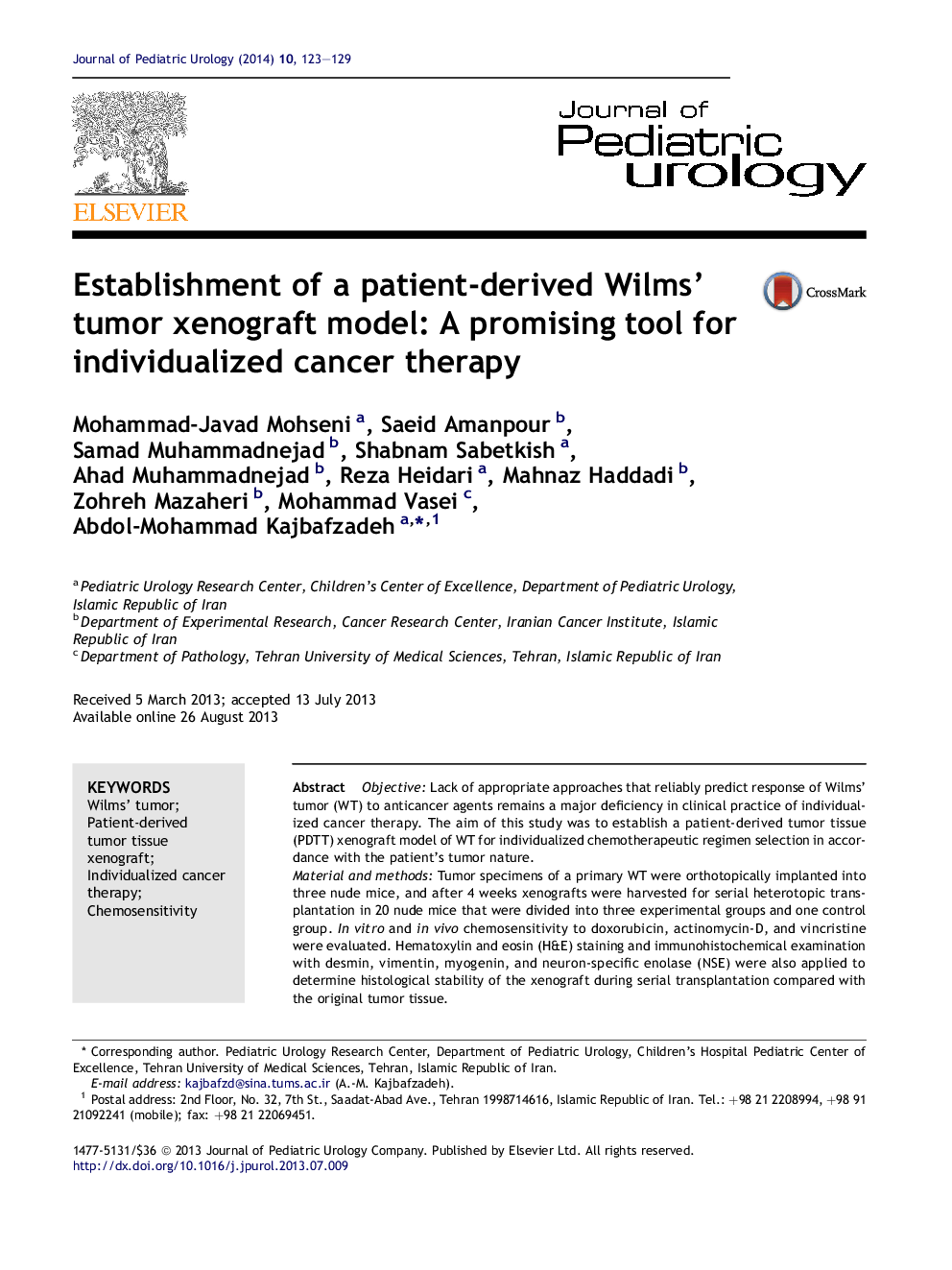| Article ID | Journal | Published Year | Pages | File Type |
|---|---|---|---|---|
| 4162971 | Journal of Pediatric Urology | 2014 | 7 Pages |
ObjectiveLack of appropriate approaches that reliably predict response of Wilms' tumor (WT) to anticancer agents remains a major deficiency in clinical practice of individualized cancer therapy. The aim of this study was to establish a patient-derived tumor tissue (PDTT) xenograft model of WT for individualized chemotherapeutic regimen selection in accordance with the patient's tumor nature.Material and methodsTumor specimens of a primary WT were orthotopically implanted into three nude mice, and after 4 weeks xenografts were harvested for serial heterotopic transplantation in 20 nude mice that were divided into three experimental groups and one control group. In vitro and in vivo chemosensitivity to doxorubicin, actinomycin-D, and vincristine were evaluated. Hematoxylin and eosin (H&E) staining and immunohistochemical examination with desmin, vimentin, myogenin, and neuron-specific enolase (NSE) were also applied to determine histological stability of the xenograft during serial transplantation compared with the original tumor tissue.ResultsThe xenograft model was successfully established. Histopathologic characteristics of the xenograft tumors were similar to the patient's tumor. Early passage of the PDTT showed a similar chemosensitivity pattern to the original tumor tissue.ConclusionsPDTT xenograft of WT provides an appropriate model for individualized cancer therapeutic regimen selection by means of its biological stability compared with original patient's tumor.
